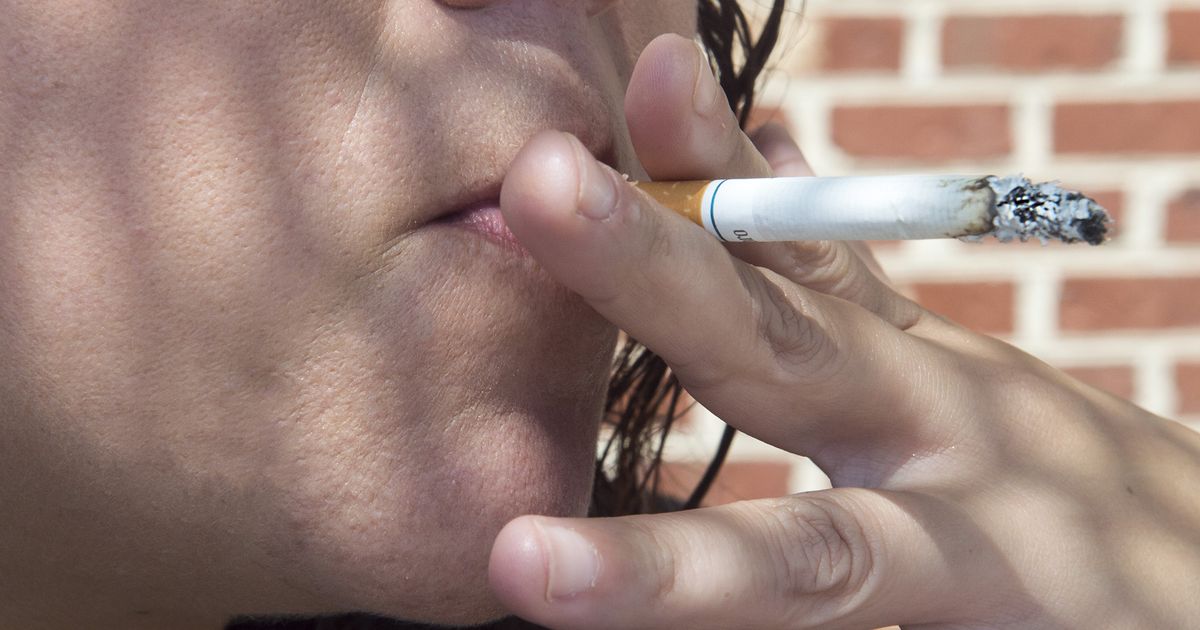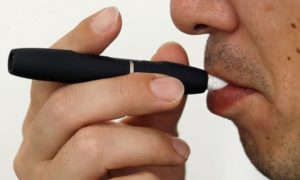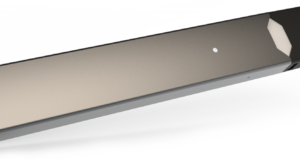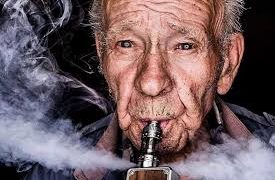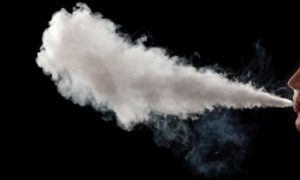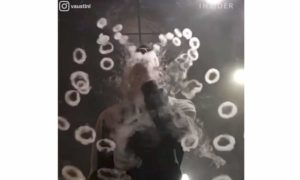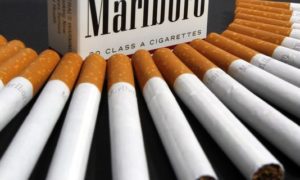FRANKLIN COUNTY - Smoking now comes at an even higher price in Pennsylvania.
The price per pack of 20 cigarettes increased by a dollar throughout the state beginning Aug. 1, and by two dollars in some areas. The culprit was a 62.5 percent increase in the state cigarette tax, which boosted the tax-per-pack from $1.60 to $2.60. Smokers who buy their cigarettes by the carton now pay $10 more for their 10 packs, or $26 overall to cover the cigarette tax.
Each pack of cigarettes now costs around $8 for one pack, or about 40 cents per cigarette - a 13-cent increase.
The tax change was part of the nearly $1.3 billion tax and revenue package needed to balance the $31.5 billion state budget passed earlier this summer.
The price increase affected not only consumers but also retailers. The "cost of the retailer," a term describing the cost incurred by retailers to sell cigarettes that is then passed on to the consumer, increased from 6 to 7 percent, according to the Pennsylvania Department of Revenue.
On top of the increased cigarette tax and retailer cost, consumers pay a 6 percent sales and use tax on the retail purchase price of cigarettes and little cigars. And in some places, anyone buying cigarettes or little cigars will also pay 1 or 2 percent local sales tax.
All of this makes for the largest single increase on the state’s smokers since Pennsylvania first imposed a cigarette excise tax in 1935, according to the Associated Press. The increase puts Pennsylvania's cigarette tax as the 10th highest in the county, whereas previously it was 23rd along with Ohio and Delaware.
Smokers look elsewhere for their fix
But the increase hasn't deterred some smokers from continuing their habit. Lynne Washburn has been smoking for 33 years and she isn't going to quit any time soon.
"I think it sucks," Washburn said on the tax increase. "Less than half the population smokes. If they want to do something to deter bad behavior they need to think about taxing alcohol. They're just demonizing this (smoking) to make money."
Washburn has quit smoking in the past for a year or two, but she is continuing to smoke now and said she's "not ready right now" to quit and when she does it will be "because I want to quit, not because Governor Wolf wants me to quit smoking."
For now, she's not buying her cigarettes in the state. She said she travels to Virginia to buy both cigarettes and gasoline as they are cheaper to buy there - more than 40 percent cheaper for the cigarettes. According to the Campaign for Tobacco-Free Kids website, the average retail price per pack with all taxes for Pennsylvania is $8.27. Virginia's average price is $4.78 with a $0.30 excise tax per pack. Maryland's average price is $6.60 with a $2 excise tax, while West Virginia's average price is $5.53 with a $1.20 excise tax.
It's people like Washburn who go out of state to buy their cigarettes that has store owners worried. Eric Christie, owner of Christie's House of Pipes & Cigars in Waynesboro, has been in business for 35 years, and this new law has him concerned.
"For the first time in my life, I wonder if I'm gonna make it," Christie said, about his business. "Our sales are going across the border. Might as well kiss it all goodbye."
Neal's Convenience and Tobacco store owner Vipul Patel said he's heard customers are saying they'll go out of state to buy cigarettes. Since most of the store's profits come from cigarette sales, that will affect the store's bottom line. It remains to be seen if Patel opens a new store or tries a different method.
"I'll have to focus on groceries now," Patel said.
The higher cost for cigarette smokers will benefit the state's children and farmland. The money generated from cigarette taxes goes to the Children's Health Insurance Program and the Agricultural Conservation Easement Purchase Fund. The Children's Health Insurance Program provides health insurance to uninsured children and teens and receives $30.73 million annually just from the state's cigarette tax revenue, and the Agricultural Conservation Easement Purchase Fund, which preserves Pennsylvania farmland, receives $20.49 million annually.
But those figures depend on customers continuing to buy cigarettes in Pennsylvania. The Associated Press reported the state's Department of Revenue estimated the tax would result in $425 million annually and sales would decline 9 percent due to the tax increase and the increase in the cost of retailer.
Vaping industry hit too
The tax increase went into effect at the beginning of the month, and there is still more to come. Starting Oct. 1, pipe tobacco, chewing tobacco, snuff, and any other tobacco products for chewing, ingesting or smoking, except cigars, will be subject to a $0.55 per ounce tax, with a minimum tax per package of $0.66. Electronic and vaping products will also be included in this as well, as both the liquid nicotine products and the devices used to consume them will be subject to a 40 percent tax on the wholesale price, paid by the customer.
The electronic cigarette law going into effect in October is part of the reason one local vape store closed. That Vapor Shoppe, located at 896 Lincoln Way West, closed last Monday. . Store owner Cody Mouse said the FDA's regulations and the increase in costs were among the factors that pushed the store to close. Mouse estimates the impending rules in October were one quarter of the reason the shop closed. He said he saw the tax increase coming for a while.
"From the business side, I completely understand what the state's doing," Mouse said. "It's a shame to see it (the electronic cigarette industry) being hurt."
However, not all vape shops are facing dire times. Steven Kane of Vast Vapor saw a 40 percent sales increase in his three stores in the first week of the tax's implementation. Kane said there is "no question" tobacco smokers are becoming discouraged with the high prices.
"That definitely has an uptick in our stores," Kane said.
Given the old saying "what goes up must come down," Kane said he knew when he started his business over four years ago there would come a day when the FDA and other federal agencies would look to encroach on the electronic cigarette industry to make up for the lack of regular cigarette purchases. He used a broker to help offset the costs so the consumer wouldn't feel the effect of the tax as much and business would stay up. A smoker himself for several years, Kane was able to wean himself off cigarettes using vaping products and started his store to help other smokers get off cigarettes.
"Ultimately, we'll do whatever we need to do to survive," Kane said. "We're not closing our doors. We're here for our customers."
David Barr, 717-881-7020
Click here to view original web page at www.publicopiniononline.com

